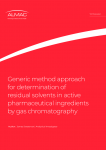Newly launched ‘skunkworks’ firm seeks to elevate drug development

With the launch of Protodigm, founder and CEO Mike Rea (also founder and CEO of sister firm IDEA Pharma) hopes to “revolutionize” the field of drug development. The company has brought together a diverse group of professionals (including scientists from Oxford and Cambridge, a Harvard Business School Graduate), an FDA scientific advisory board member, widely published scientific author, and others) to offer diverse skill sets, perspectives, and expertise to foster innovation.
Rea discussed the new organization with Outsourcing-Pharma, explaining its commitment to innovation, novel approach, and the benefits of the colorfully named ‘skunkworks’ approach.
OSP: Could you please share an ‘elevator presentation’ description of Protodigm?
MR: Protodigm is two very new things: a contract skunkworks, and a next-generation contract research organization (CRO), bringing a novel disruptive approach, rather than a version of what already exists. At IDEA, our path-to-market consultancy, we have supported eight of the fifteen biggest drug launches in the last five years and run the longest ever study of innovation in pharmaceuticals, the Pharmaceutical Innovation and Invention Index.
Protodigm is the next natural step in that journey, born out of the deep insights gained from studying the effects of premature drug specialization and linear stepwise R&D decision making that are significantly holding back innovation.
Protodigm provides the industry with a solution; we are a drug development partner, not just doing what we are asked, but increasing opportunity in early-stage drug development by providing a wealth of path-to-market options and increasing evidence quality in the exploratory phases – Phase I and Phase II.
In addition, when it comes to new possibilities – imagine you wanted to create a combination product – a novel formulation-device-diagnostic-digital-endpoints combination solution, for example. It’s something that would be hard for any pharma company to do internally. Protodigm’s skunkworks can prototype, develop, and iterate a solution faster and more effectively.
How this works in practice can take many forms - at the core of our thinking is our options, evidence, and decisions (OED) framework, which embodies our belief in learning by doing – ask the question, design a plan to learn, generate the evidence using the universe of novel and emerging technologies (e.g., AI, pan-omic profiling, simulation, and modeling) available to us, together with our insights (i.e. reimbursement, regulatory) and then re-visit the original question. A poorly understood fact of our industry is how much serendipity lies in our marketed drugs – serendipity is about seeing opportunity faster than others do, so we’ve set up a company to do that by design.
What makes Protodigm different is the full spectrum of our services. There is not another company operating in biotech and pharma that will and can take your pipeline and provide you with new possibilities to utilize your pipeline, then prototype and test those possibilities for you, and finally give you a complete picture with quality evidence explaining which are your best options.
We have a willingness to embrace uncertainty - what we don’t know - and have the ability to generate the right evidence to improve decision-making ability early, efficiently, and reliably. We’re a purposeful hub for the thousands of solutions that are looking for applications.
OSP: Could you please tell folks who don’t know what a ‘skunkworks’ approach is, and why it might appeal to pharma firms and their research partners?
MR: The Wikipedia definition of skunkworks is wholly apt: “The designation ‘skunk works’ or ‘skunkworks’ is widely used in business, engineering, and technical fields to describe a group within an organization given a high degree of autonomy and unhampered by bureaucracy, with the task of working on advanced or secret projects” – developed as an idea by Lockheed Martin, it was a way to move faster, with greater agility and creativity than the main organization could.
It is a term we have borrowed from the engineering and technology sectors - that embodies the idea of re-imagining what is possible, by a team that is designed to innovate. We want to bring the disruptive thinking that has been so successful in the technology sector to the healthcare sector.
We will work alongside our biotech and pharma partners to prototype novel solutions, for example, a digital drug device, which might not necessarily be suited to being developed in-house for a lack of awareness or inflexibility that is often a consequence of rigid thinking in more mature industries.
OSP: Please tell us more about the impressive team of scientists you’ve assembled from Harvard, Oxford, Cambridge, and other corners.
MR: We like to think of ourselves as a next-generation CRO, not just doers, but a team of hypothesis and evidence generators, leveraging the best minds in ‘decision science’ and the most cutting-edge technologies to shine a light on a unique universe of possibilities for a given asset. The breadth of experience within our team gives us “range”, and the ability to bring outside perspectives to internal challenges.
OSP: You mention in your launch announcement one of your goals is to help clients avoid “premature specialization in drug development." Could you please share how companies might fall into that, what are the problems with such limitations, and how exactly will Protodigm work to help them keep from obtaining too narrow a focus?
MR: Indication selection is something that the industry has broadly accepted as the reasonable thing to do in moving a drug into Phase I and beyond. Our view is that it is unrealistic to select an indication, and certainly the place within that indication, at that stage, before you have any evidence. You can pick any indication you want, but typically you pick the 'easiest' or most obvious one, figuring you can refine the positioning later once you collect some evidence. That seemingly inoffensive decision will sit as a 'sliding doors' moment in the development plan forever.
Here's an analogy: you decide that New York is the best place for your new company. If you can make it there, you can make it anywhere. Once you've decided, there is a whole lot of deciding left to do: neighborhood, kind of business, etc., but all of the thousand things that will matter - recruitment, services, overhead, prices, investment, etc. - would be different if you had only chosen San Francisco, or Miami, or Pittsburgh, or Basel. But, apart from wondering, you will be left figuring things out in New York, dealing with the sunk cost of your decision. Had you done all of that evaluation before you chose, you may have made it to New York eventually, but you may not have started there.
If you give your new molecule to the immunology therapeutic area to evaluate, that would be like asking a New Yorker to assess your choice of location. The answer will be New York, or rheumatoid arthritis, and it may even have a lot of attractive detail sitting next to it. But the answer will never be Tokyo, or cancer.
The problem of 'indication selection' is in the 'selection'. If you don't know enough to make a decision, then your selection is premature. Knowing this, you have to stick with the crowd and hope you can fix it later, or you can do more exploration before committing. That should involve some imagination, some 'what if', and a great deal of hypothesis generation, but when you do make your 'selection', you will already have a competitive advantage over those wandering Times Square, wondering what is next.
At Protodigm our mission is to ask the questions, identify options and provide evidence to support that early decision-making process.
OSP: Do you have anything to add?
MR: The kind of explosion in possibility that we have seen in novel discovery platforms is also happening in development, but largely outside pharma. Protodigm provides a hub by which novel solutions – formulation science, device and material science, digital, AI that helps design better clinical trials, endpoint solutions, novel commercial solutions, etc. – are all integrated into our offer.
Rather than doing the same things slightly better, Protodigm does something different. As well as doing the right things, and doing things right, we help companies understand what the right things are, faster and more reliably than ever before.



















